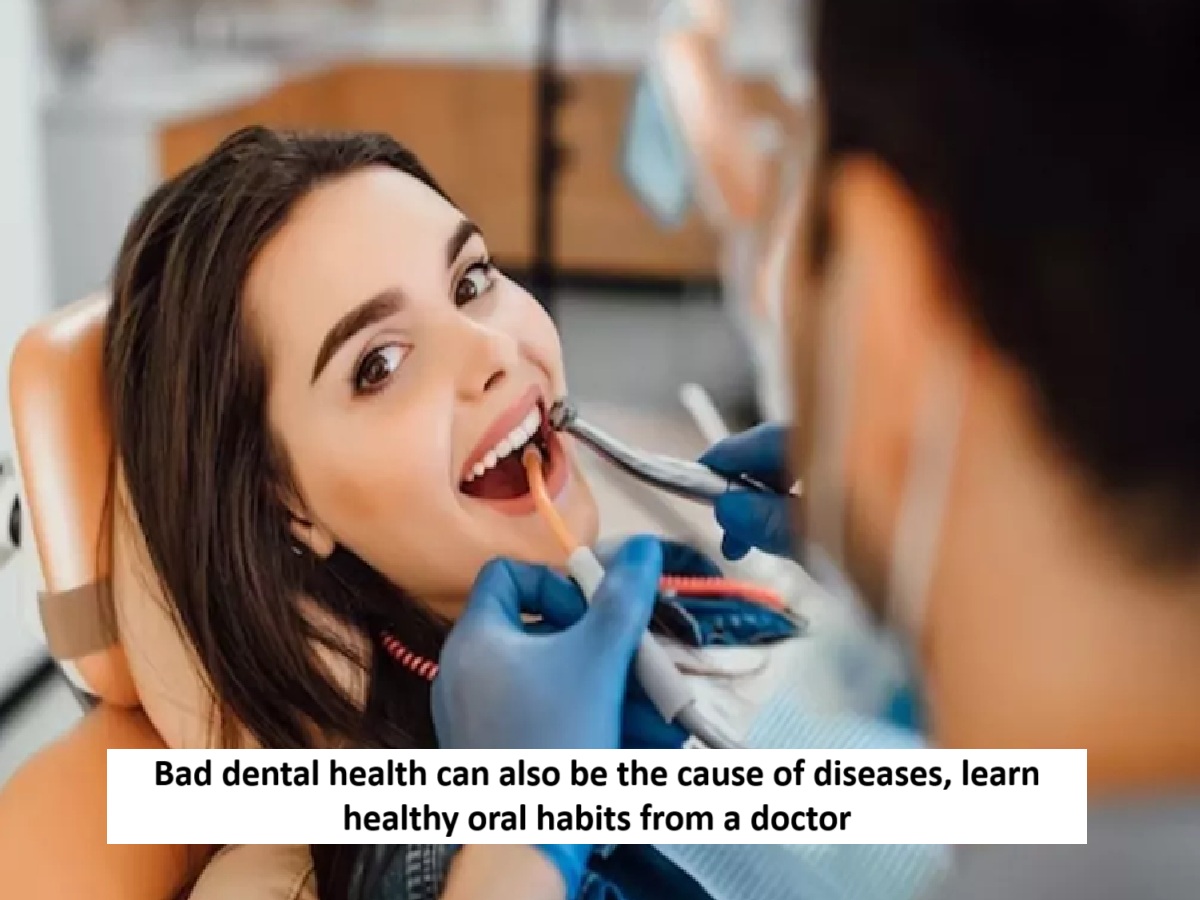
News Topical, Digital Desk : Teeth are not only used for biting and chewing. They also play a major role in enhancing the beauty of your face. The main disease found in mouth and teeth is pyorrhea or gum infection, which is caused by the accumulation of plaque and tartar.
Plaque is an invisible smooth layer made of food particles and germs, which can be felt on the surface of the teeth after waking up in the morning. When the minerals present in the saliva get deposited in this plaque, it turns into tartar or calculus in the form of a hard stone. The germs present in the plaque produce enzymes and other toxic substances, which harm the gums.
There are mainly two types of gum infections. Gingivitis or inflammation of the gums, due to which the gums become red and swollen and start bleeding. The second is periodontitis, which is a serious gum disease. In this, the gums start separating from the teeth and the bone supporting the teeth starts melting. In this condition, the gums start bleeding automatically, the mouth smells bad and due to the movement of the teeth, a gap starts appearing between them.
Symptoms of Tooth Decay
- If plaque is not cleaned regularly with a toothbrush, the germs present in it convert the sugar in the food into acid, which causes pits to form on the enamel, the uppermost surface of the teeth.
- The main symptoms of tooth decay are toothache, sensation of hot and cold, and appearance of black or brown stains on the teeth.
Sensitivity
When the upper surface of the teeth gets worn out or worn out due to some reasons, the teeth become sensitive to hot and cold things. The main reasons for this are wear of enamel, tooth decay, gum infection, cracks in teeth or broken teeth. Due to sensitivity, there is also difficulty in eating sweet and sour food.
crooked protruding teeth
These days, most children have crooked teeth that stick out. The main reason for this could be genetics, thumb sucking habit or injury to the jaw. Due to this, children face difficulty in chewing food, breathing and speaking. They are also not able to clean their teeth properly.
Preventive measures
- Rinse thoroughly with water after eating anything.
- Clean your teeth with a good brush twice a day.
- Be sure to brush your teeth before going to bed at night, as the germs get enough time at night to produce acid.
- Change the brush every three to four months.
- Two to three minutes is enough for brushing.
- Remove food particles stuck between the teeth that cannot be removed with a brush using floss. The correct method of brushing and flossing can be learned from a dentist.
- Tooth decay can also be prevented by using antiseptic mouthwash.
- Clean your tongue regularly too.
How to choose the right toothpaste?
Generally, the chemical composition of all common toothpastes is the same and additional chemicals are added to them. The correct method of brushing and flossing can be learned from a dentist. Some toothpastes are used to remove food particles stuck between the teeth. The correct method of brushing and flossing can be learned from a dentist.
Toothpaste used for sensitive teeth can also help to prevent tooth decay. Potassium nitrate or stannous fluoride is added to toothpastes, but choose these pastes only after consulting a dentist. A typical paste contains fluoride, detergent to create foam, sorbitol or glycerol to retain moisture and cellulose to thicken it.
Colours, antibacterial chemicals and sweeteners are added to the paste for sweetness. Toothpastes containing more abrasive substances or charcoal wear down the teeth quickly. After feeding the infant, clean their teeth and gums by wiping them with a soft cloth or handkerchief.
attention to food
- Eat healthy food like fibrous fresh fruits, vegetables and calcium rich foods.
- Bakery products, such as pizza, bread, biscuits, pastries and chocolates easily stick to the teeth, increasing the risk of tooth decay.
- Excessive consumption of soft drinks damages the enamel, the upper layer of teeth.
- Smoking, tobacco and chewing paan should be avoided. These pose a big risk to oral health.
- Do not eat sweets between meals.
- Get regular check-ups done by your dentist every six months.
- Bakery products contain high amounts of sugar.
--Advertisement--

 Share
Share



